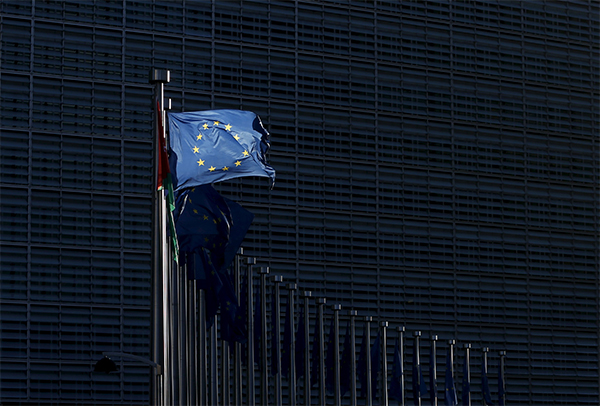-
Tips for becoming a good boxer - November 6, 2020
-
7 expert tips for making your hens night a memorable one - November 6, 2020
-
5 reasons to host your Christmas party on a cruise boat - November 6, 2020
-
What to do when you’re charged with a crime - November 6, 2020
-
Should you get one or multiple dogs? Here’s all you need to know - November 3, 2020
-
A Guide: How to Build Your Very Own Magic Mirror - February 14, 2019
-
Our Top Inspirational Baseball Stars - November 24, 2018
-
Five Tech Tools That Will Help You Turn Your Blog into a Business - November 24, 2018
-
How to Indulge on Vacation without Expanding Your Waist - November 9, 2018
-
5 Strategies for Businesses to Appeal to Today’s Increasingly Mobile-Crazed Customers - November 9, 2018
European Union considers renewed border checks
Additional security is needed on the Greek-Macedonian border, a European Commission spokeswoman said following news that a Pakistani man was stabbed to death there in an affray between migrants.
Advertisement
The European Commission yesterday said it may eventually allow member states of the passport-free Schengen zone to reintroduce border checks for up to two years to cope with the migration crisis.
The report is based on an evaluation mission that went in November to the Greek-Turkish land border and several islands in the Aegean Sea – the main landing points for the one million migrants who arrived in Europe in 2015.
The European Commission has accused Greece of “seriously neglecting” its obligations under the Schengen Code by failing to maintain proper border controls.
The commission’s migration and home affairs commissioner Dimitris Avramopoulos did say that Greece had begun efforts to rectify and comply with the Schengen rules since the report was researched in November. Officials warned that Athens faced unprecedented border controls that would isolate it from the rest of the 26-member Schengen zone if it does not act by April.
Currently, the migrant crisis is the issue which could prompt voters to decide whether Britain has a future in Europe.
A migrant girl tries to warm herself as she disembarks a boat at Lesbos Island, Greece, Monday, Jan. 25, 2016.
“They want to quarantine us”, daily Elefterios Typos said, reporting the threat of an EU-assisted sealing of the Greek border with the non-EU and non-Schengen Macedonia, the next country the migrants cross en route to western Europe.
It is “inevitable” the unprecedented measures will be required when the current six-month period of temporary border checks imposed by Germany and five other states expires in May, the Dutch government said. “The body of a young boy was washed ashore”, a Greek coastguard official said. Sobotka said it was even a question whether Greece had “given up” on its duties.
Over a million migrants and refugees reached the European Union a year ago, with more than 80 percent of them traveling to the Greek islands facing the coast of Turkey.
The commission would then review their reports before approving the reintroduction of controls.
The new report comes as Germany has temporarily reintroduced border controls in its part of the passport-free Schegen area until May 13.
More than 54,500 people have already reached Europe by sea this year, including 50,668 through Greece, according to the United Nations Refugee Agency (UNHCR).
Greece is not the only country under fire over its handling of the migrant crisis, with Denmark facing criticism Wednesday after its lawmakers passed a bill allowing authorities to seize valuables from refugees.
Northern countries suspect Greece has simply waved through migrants, in a violation of European Union asylum rules, in order to prevent becoming a vast refugee camp.
Appearing anxious to calm a confrontation with Athens – which had already clashed with Berlin a year ago over bailout loans to keep Greece in the euro zone – the German interior minister was more reserved: “Blaming people in public doesn’t help”, Thomas de Maiziere said.
Advertisement
“In interview with Die Zeit last week, Mouzalas said that the Greek border is “perfectly protected” and stressed that threatening to suspend his country from the Schengen area was “absolutely senseless”, adding that “[European] politicians resort to the populist accusations only to appease their own voters”.





























